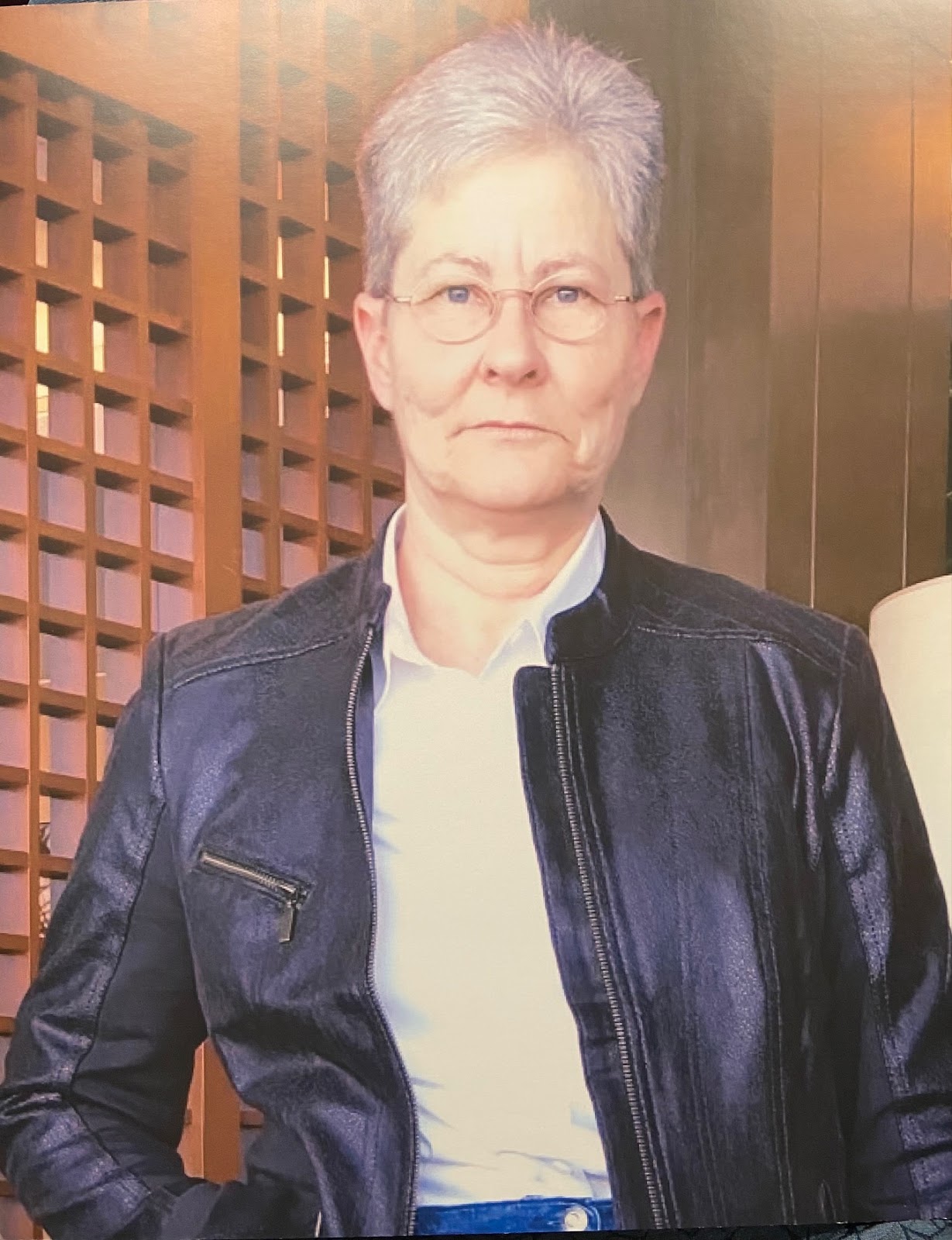Does an ‘extraordinary’ half-billion dollar donation offer new potential for affordable housing in Winnipeg?
Why It Matters
The Winnipeg Foundation, Canada’s largest community foundation, just announced they have been gifted one of Winnipeg’s largest apartment rental companies. How they choose to steward this asset could impact Winnipeg’s housing market in the coming years.

Sky Bridges, CEO of the Winnipeg Foundation, the country’s largest community foundation. (Courtesy: Winnipeg Foundation)
This journalism is made possible by the Future of Good editorial fellowship covering the social impact world’s rapidly changing funding models, supported by Future of Good, Community Foundations of Canada, and United Way Centraide Canada. See our editorial ethics and standards here.
When she passed away, Miriam Bergen left her city with an unprecedented gift.
Last week, on Giving Tuesday, the Winnipeg Foundation announced they have received an estate gift, valued at $500 million from the late Winnipeg businesswoman and philanthropist — the largest gift ever given by an individual to a charity in Canadian history.
“This is absolutely extraordinary,” says Sky Bridges, CEO of the Winnipeg foundation, in an interview with Future of Good last week. “I cannot thank Miriam enough for her tremendous gift to our community. It is absolutely tremendous and extraordinary in so many ways.”
Beyond size alone, the gift, too, is rare in its form. Despite the potential of estate gifts, just five percent of Canadians leave a donation in their will, according to research conducted in 2020 by Will Power, a campaign to promote estate giving.
And moreover, the substance of the gift is also unique. Once the estate is settled, Winnipeg Foundation will become the owner of one of the biggest apartment rental providers in the city.
Prior to her passing, Miriam Bergen was the president and owner of Appleton Holdings Ltd., a company that operates as Edison Properties, which owns and manages rental and commercial properties across Winnipeg.
The company was started by her father, Martin Bergen, after immigrating to Canada from Ukraine at the age of 26. Since then, it has grown under the management of both Bergens, to employ about 200 staff and manage 5,000-odd units across 27 properties throughout Winnipeg.
While a foundation being gifted a private company might sound strange, Malcolm Burrows, head of philanthropic advisory services with Scotia Wealth Management, says, by email, it’s more common than you might think. The approach, he says, is pragmatic for a donor who is keen to make a large gift and whose wealth, prior to their death, is primarily held in a company.
It’s becoming more common, too, Burrows says, with the growing shares of wealth at the top end of the economic pyramid and as more donors are aging without kids. (Bergen’s obituary says she is survived by her lifelong partner, Louise Redekop, three beloved pets, and wider family, including brothers, nieces and nephews and cousins.)
Normally, charities or foundations that are gifted a private company will sell it promptly in order to quickly flow the funds to the community, Burrows says. But that’s not the case here.
In a press release, the foundation said they “understand Miriam’s wish that all their staff retain their roles and positions and [have] no plan to sell or dissolve Appleton Holdings Ltd. or Edison Properties.” They said the company will continue to operate on a “business as usual” basis.
The gift will be endowed within the foundation’s community fund and Bridges says it will be spent, as with the rest of the endowment, in alignment with the foundation’s “spending policy” (a policy that outlines the amount the foundation distributes to charities each year.)
The foundation’s long-term spending (or donation distribution) rate is 4.5 per cent of the foundation’s assets, according to a 2021 document. Last year, for instance, the foundation spending rate was 5 per cent, and the foundation distributed $60 million to charities based on assets of about $1.75 billion.
This means that rather than selling the company and quickly flowing the proceeds of the sale to charities in the community, the foundation will hang onto the company, using it to boost its granting for many years into the future.
Edison’s president says this approach could open up exciting possibilities.

Josh Brandon, a community organizer with Social Planning Council of Winnipeg, at Winnipeg’s City Hall in 2018. Brandon says he is hopeful that the foundation will use Bergen’s gift to support affordable housing (Credit: Rachel Morgan).
Gift of company presents big ‘potential’
In an interview with Future of Good last week, Frank Koch-Schulte, president of Edison Properties says it’s unfortunate that, since the foundation’s announcement “everyone keeps focusing on the dollar-value associated with the gift.
“It kind of distracts everything from the bigger potential of what can happen here,” he says. “The Winnipeg Foundation and Edison — I think they have a lot of values and intent that align well.”
Koch-Schulte says he is wary of speculating on what that potential could be, but noted that his staff are keenly interested in affordable housing and that the foundation is, too. At minimum, he says, this could look like Edison passing along some of their knowledge to the foundation.
At maximum, one might assume this could look like the foundation working with the company to advance affordable housing through the company’s existing or future housing portfolio.
This is an approach Josh Brandon hopes the foundation will take seriously.
In an interview with Future of Good last week, Brandon, a community organizer with Social Planning Council of Winnipeg, says through ownership of Edison, the foundation has an opportunity to boost the number of homes that are rent-geared to income and to bring more non-profit affordable housing onto the market.
He says that kind of work is urgent. In the most recent street census, Brandon’s organization and its partners identified and interviewed more than 1,200 people who are experiencing homelessness in the city; and Brandon notes that the actual tally is likely far higher.
Further, he adds he’s hopeful that the foundation will take this approach recognizing the link between Edison’s business and the housing crisis the city is facing.
“The [Bergen] family did benefit for many decades from increasing property values here in Winnipeg,” he says. “And so, it would make sense, I would hope, that the Winnipeg Foundation sees the value in drawing that connection between the financialization of housing, the increase in core housing need (and the need for affordable housing) — and the source of the donation.”
Bridges agrees with Brandon on the challenges the city is facing around housing, noting that over the last three years, the foundation has granted more than $5 million to organizations working in the areas of housing and homelessness.
As for the foundation’s core focus for the donation, Bridges says Bergen’s gift will allow the foundation to “go even deeper,” on critical issues facing the community, including housing and homelessness. Bridges says two soon-to-be-released documents, a new strategic plan and the organization’s 2022 Vital Signs report, will guide where exactly the foundation will allocate funds.
Bridges says, however, that the foundation will not be directly involved in the management of Edison: “The company has an independent board and management structure, where we’re not getting involved in the day-to-day issues.”
According to Mark Blumberg, a Toronto-based charity lawyer, in most cases when a foundation wholly owns a company they are able to determine who is on the board of directors. Those directors, in turn, can select the company’s management.
Future of Good asked for a copy of the donation terms or for more information about the relationship that will exist between the foundation and the company. LuAnn Lovlin, the foundation’s director of communications reiterated, by email, that once the transfer of Appleton’s shares takes place, the company will operate with an “independent board and management.”
This approach, of maintaining ownership over Appleton, raises some concern for Burrows, however. He says a foundation owning a private company could prove “problematic long-term” — based on the competing priorities of the business and the foundation.
“[The Foundation] will need to ensure the charitable purposes of the foundation are not secondary to business or its needs, [such as] employees and capital investments,” he says, by email. “And there [are] potential risks of being a major landlord.”
For his part, Brandon adds that while he well understands the value of community endowments — of supporting community projects long-term — he stresses the importance of the foundation’s investments aligning with its values.
“I think there is a role for non-profit organizations and foundations that have these kinds of investments to make sure that their investment portfolio matches their social obligations and their social agenda,” he says.
But is it fair to assume that because the company is a landlord, its work is inherently misaligned with the foundation’s values?
Koch-Schulte says throughout the company’s history, they’ve been conscious of providing value for tenants and creating a home for residents that staff themselves would want to live in. “In an industry where typically landlords aren’t everyone’s favourite person,” he says, “we try to do things a little bit differently.”
By way of example, Koch-Schulte recalls that in the eighties or nineties, the company instituted a ten-year rent freeze across their buildings. Martin Bergen explained the decision to Koch-Schulte simply by saying he was done developing new buildings for the time being, so he didn’t need any additional capital to build.
Koch-Schulte, like Brandon and Bridges, says access to affordable housing is a considerable concern, but pushes back against the idea that Edison has profited off of rising cost of housing. He notes that the company’s buildings take a lot of work to maintain — to fix the roof or the parkade, to invest to ensure the properties stay competitive with other newer builds, and to account for rising property taxes.
He says he understands tenant frustrations with rising costs, but says it’s a necessity. “We can’t not take care of the buildings, because otherwise it falls into disrepair, and there’s examples of that throughout the city as well.”

When Miriam Bergen died in January 2022, at age 66, she left the Winnipeg Foundation a gift, valued at $500 million, which included a privately held family company. (Courtesy: Winnipeg Foundation)
Gift shows Bergen’s love of Winnipeg
Bridges says that with a donation of this size and complexity, it will take one to two years before the donation is transferred to the foundation. This process will be time-intensive because it includes the appraisal of many pieces of real estate.
In reflecting on the gift, the foundation’s CEO says he feels deep appreciation for Bergen’s approach to “quiet philanthropy.” He notes that Bergen gave to support community initiatives throughout her life, and often gave anonymously.
Koch-Schulte, too, when asked about Bergen, cites her generosity as one of her defining characteristics — that she was approachable, unassuming and focused on the people side of Edison’s business.
“I think the donation itself is very much in line with Miriam and the Bergens’…love of Canada, and the city,” he says.
“Given that [Bergen and her partner] didn’t have any children, this is a good way to ensure that their legacy keeps benefitting the city that let them succeed.”
